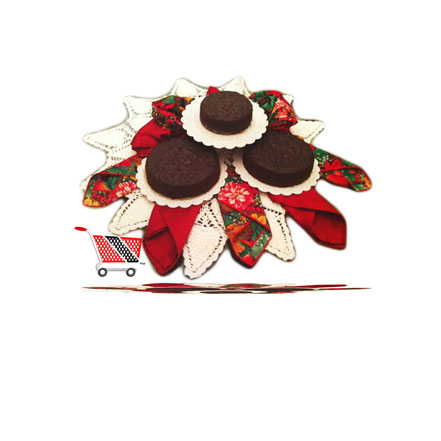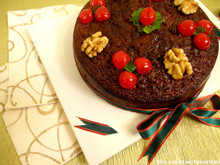 Loading... Please wait...
Loading... Please wait...- Home
- Featured Promos
- Caribbean Rum Cake
Caribbean Rum Cake
Product Description
Traditionally served at Christmas, black cake is intensely aromatic, infused with the rich flavors of rum, cherry brandy, fruit and spices.
Although black cake is descended from the British plum pudding, for Caribbean-born New Yorkers and their children, who number more than half a million, it evokes nostalgia for the islands, where the baking was a solemnly observed annual ritual.
Black cake reflects the British presence in the Caribbean. The brown sugar, molasses and rum are reminders that it was the quest for sugar, and the slave labor that harvested it, that kept British colonialists in the islands.
Because of the soaking of the fruit and the use of brown sugar and a bittersweet caramel called browning, black cake is to American fruitcake as dark chocolate is to milk chocolate: darker, deeper and altogether more absorbing.
Just before baking, the softened soaked fruit is ground to a wine-sweet paste that gives the cake its profound flavor; the grinding also eliminates the hard fruit chunks that traumatize many eaters of fruitcake. Black cake is often encased in hard white icing but is never decorated with bright, gummy glacé cherries: its dark, loamy crumb is considered beautiful in its own right.

Product Videos
-
 How To make Caribbean Black Cake.Black cake, fruit cake or rum cake as it's called in the Cari...
How To make Caribbean Black Cake.Black cake, fruit cake or rum cake as it's called in the Cari... -
 Caribbean Black CakeIn the Caribbean, black cake is traditionally a Christmas cake...
Caribbean Black CakeIn the Caribbean, black cake is traditionally a Christmas cake... -
 How to prepare the dried fruits for making Caribbean Black Rum Cake.Here's how you can prepare the dried fruits for making traditi...
How to prepare the dried fruits for making Caribbean Black Rum Cake.Here's how you can prepare the dried fruits for making traditi...







